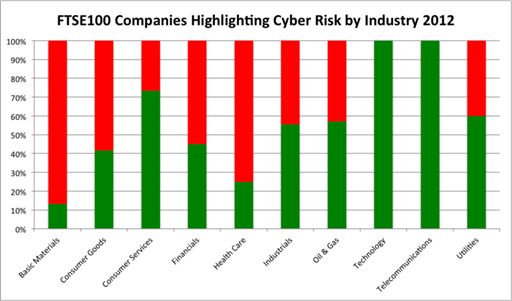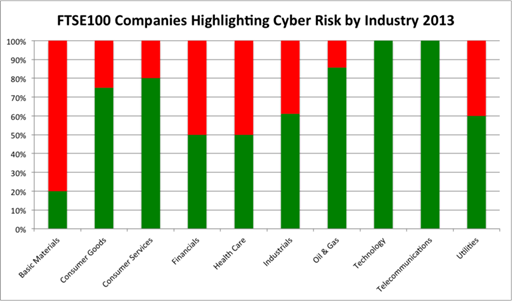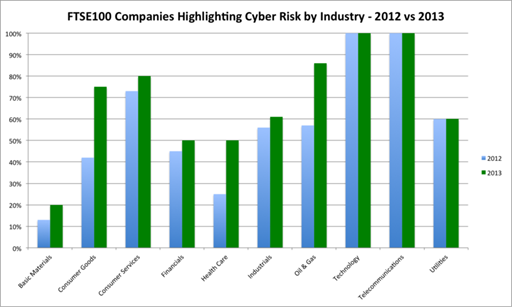Has Cyber Security Awareness Improved Among the Largest UK Businesses?

In November 2011, the UK government launched its Cyber Security Strategy in hopes of placing the issue of data and systems security on the agenda at a board level.
The government presented executive briefings on cyber security to UK businesses, setting out four main objectives: Make the UK one of the most secure places in the world to do business, make the UK more resilient to cyberattacks, shape a more stable cyberspace, and build a foundation of knowledge, skills and capabilities to support these goals.
Last February, Trustwave carried out research to determine how many of the UK FTSE 100 companies identified cyber risk as a concern in their most recent annual reports, either through explicitly itemizing it as a material risk to the business or noting the potential impact that loss of customer data may cause.
The highlights of our findings (using mostly 2012 annual reports) were:
- In total, 49%of companies highlighted cyber risk.
- Telecommunications, technology and banking companies fared well.
- Health care and basic materials (with some exceptions) gave cyber risk little to no mention.
- The only real surprise was that four consumer services firms did not make a more explicit mention of cyber risk.
The graph below breaks down the data by Industry using the standard Industry Classification Benchmark.

A year later, we wanted to know if there has been any progress in getting cyber risk onto the corporate menu. We repeated the exercise for the 51% of FTSE 100 companies that had previously opted not to discuss cyber security in their annual reports.
We reviewed their latest annual reports (mostly from 2013) to see if anything had changed with respect to cyber security. The graph below shows this data broken down again by industry.

The graph below shows the 2012 and 2013 results side by side, broken down by industry.

The situation has certainly improved. Some 60% of FTSE 100 companies now highlight cyber security in their annual report, up 11% from the previous year.
All industries showed an increase in cyber security awareness at the board level, with the exception of the utilities industry, which remained unchanged.
The most dramatic increases were in the industries of consumer goods, healthcare, and oil and gas. In healthcare, the number of companies taking cyber security seriously has doubled from the previous year. The consumer goods industry falls just short of repeating this performance, but the trend is clear to see.
What is interesting is that the companies that never mentioned cyber security before now are really starting to stress the point that successful cyber attack instances will seriously affect how they are able to carry out their usual day-to-day business operations.
What's more, a number of these annual reports have even discussed cyber security risks in their opening letter to shareholders, outlining what these individual businesses have done, or plan to do, to manage these risks.
Therefore, despite the headlines, it isn't all doom and gloom when it comes to cyber security, especially among some of the largest businesses in the UK.
Tom Neaves, senior security consultant at Trustwave.
© Copyright IBTimes 2025. All rights reserved.





















